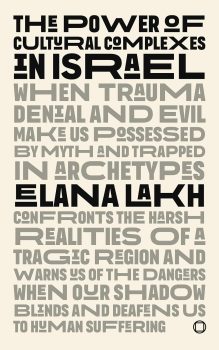The October 7th catastrophe embodied the Jewish people’s gravest fears. In the aftermath of the Hamas attack, over 1,200 men and women, children and elderly people were brutally killed, including Jewish Israelis, Arab citizens of Israel, Druze, Bedouins, tourists, and migrant workers. Additionally, over 250 individuals were abducted and taken to Gaza, where many remain hostages. Entire communities were devastated, leading to the internal displacement of tens of thousands of Israelis.
In response, Israel launched a large scale military campaign against Hamas, which continues to this day, with more than 40,000 Palestinians killed, thousands missing or injured, and hundreds of thousands displaced.
The conflict has since extended into Lebanon, Syria, Yemen, Iran, while escalating violence in the West Bank has heightened tensions between Israelis and Palestinians, sparking fears among Palestinians of another Nakba.
This book, born out of these catastrophic events, employs a neo-Jungian approach and seeks to move beyond the comfort of a single, simplified narrative. Focusing on Israeli society, Elana Lakh asserts that “Israelis exist in an ongoing traumatic reality.” She offers an understanding of the psychological processes informing the shadow within Israeli society.
Jungian theory gives us a way to look at current cultural and social phenomena through the lens of depth psychology. The collection of papers in this book offers an archetypal reading of cultural complexes operating in Israel, as well as the “End of the World” archetype, constellated during the Covid-19 pandemic. Lakh’s work pushes past theoretical confines, taking her insights to areas of urgent need. Her mission is to foster real, meaningful societal change, embodying the neo-Jungian principle that reflection must lead to action.

